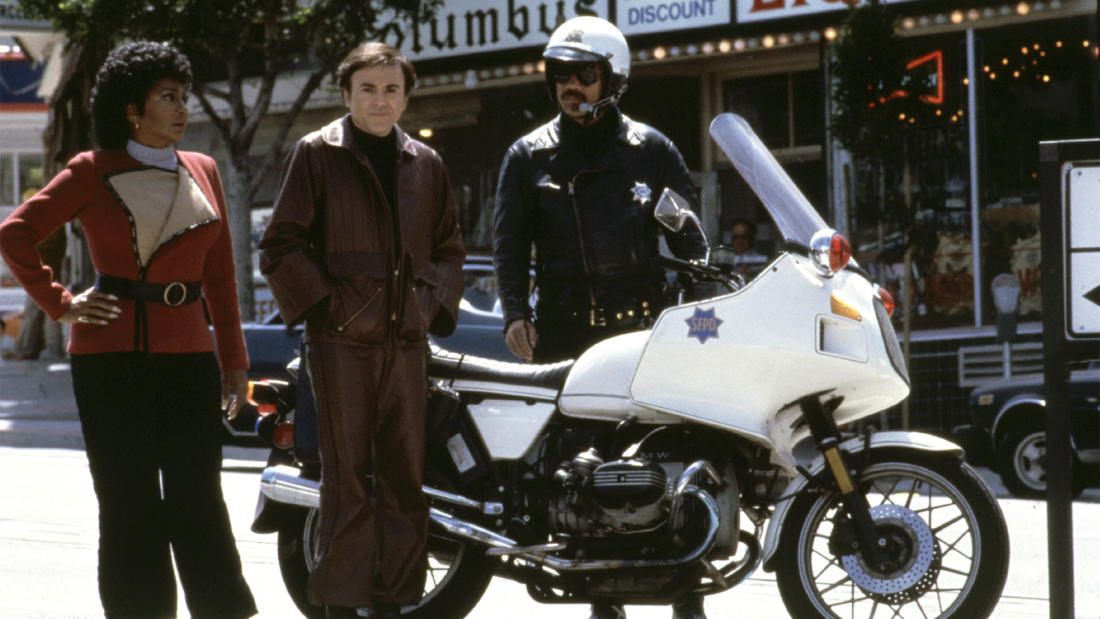
Coolidge Corner Theatre Brookline, MA
Dr. Dave Wiley
Research Coordinator for the National Oceanic and Atmospheric Agency’s (NOAA) Stellwagen Bank National Marine Sanctuary
Star Trek IV: The Voyage Home— The Amazing Underwater Lives of Humpback Whales
Program Description
A discussion of the amazing underwater lives of humpback whales in the Stellwagen Bank National Marine Sanctuary based on synchronous motion acoustic recording tags (developed at the Woods Hole Oceanographic Institution) and custom 3D and 4D visualizations (developed by the University of New Hampshire's Center for Coastal and Ocean mapping), as well as a demonstration of how humpback whales use an ingenious feeding strategy that involves expelling bubbles to encircle prey for easier capture.
Presented At
Coolidge Corner Theatre Brookline, MA
Film Synopsis
To save Earth from an alien probe, Admiral Kirk and his fugitive crew go back in time to 20th-century Earth to retrieve the only beings who can communicate with it, humpback whales.
It's the 23rd century, and a mysterious space probe is evaporating Earth's oceans and destroying the atmosphere. The probe emits a message delivered in the song of long-extinct humpback whales. Unless the probe's call is answered, Earth faces certain destruction. Admiral Kirk (William Shatner), Spock (Leonard Nimoy), and the rest of the Enterprise crew time travel to 20th-century Earth in their captured Klingon Bird-of-Prey starship to find humpback whales and bring them back to the future, in the hope that the whales will persuade the probe to stop its attacks. Landing in 1986 San Francisco, our heroes find a world more alien than anything they've encountered in their travels through the galaxy. Nimoy's 1986 Star Trek adventure (known as "the one with the whales") earned four Oscar nods and remains a favorite among Trekkies and non-Trekkies alike.
About the Speaker
Dr. Dave Wiley is the research coordinator for the National Oceanic and Atmospheric Agency’s (NOAA) Stellwagen Bank National Marine Sanctuary, encompassing 842 square miles of ocean between Cape Ann and Cape Cod. His research has ranged from studying the reproductive and foraging ecology of endangered whales to mapping marine toxic/hazardous dumpsites. He has worked with fishermen to redesign fishing gear to reduce the risk of whale entanglement and pioneered methods to successfully rescue mass stranded whales and dolphins. His research led to the shifting of shipping lanes into the port of Boston as part of an international effort to reduce the risk of ship strike to endangered whales.
Dr. Wiley is the recipient of a Switzer Environmental Leadership Award, Gulf of Maine Visionary Award, the Massachusetts Society for the Prevention of Cruelty to Animals’ Human Hero Award, and the Society for Marine Mammalogy’s award for Excellence in Scientific Communication. His research has been featured in numerous scientific journals as well as on the Discovery Channel, BBC documentaries, National Geographic, and National Public Television and Radio. In the recently published book Wildlife Heroes, he was profiled as one of the 40 top wildlife conservationists of our time.